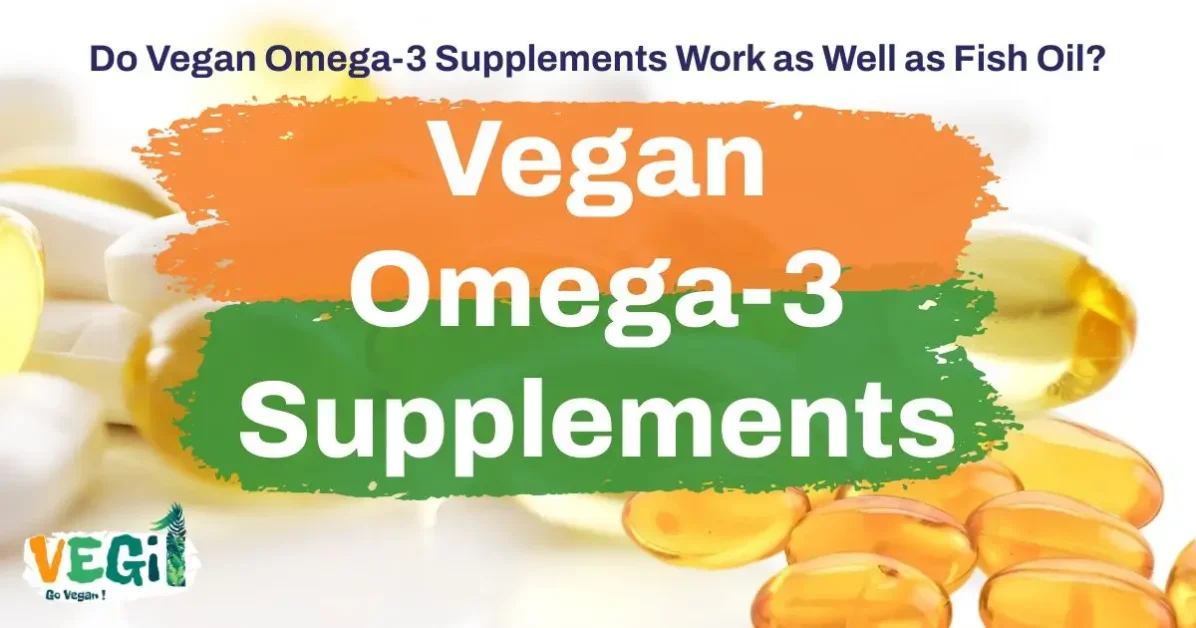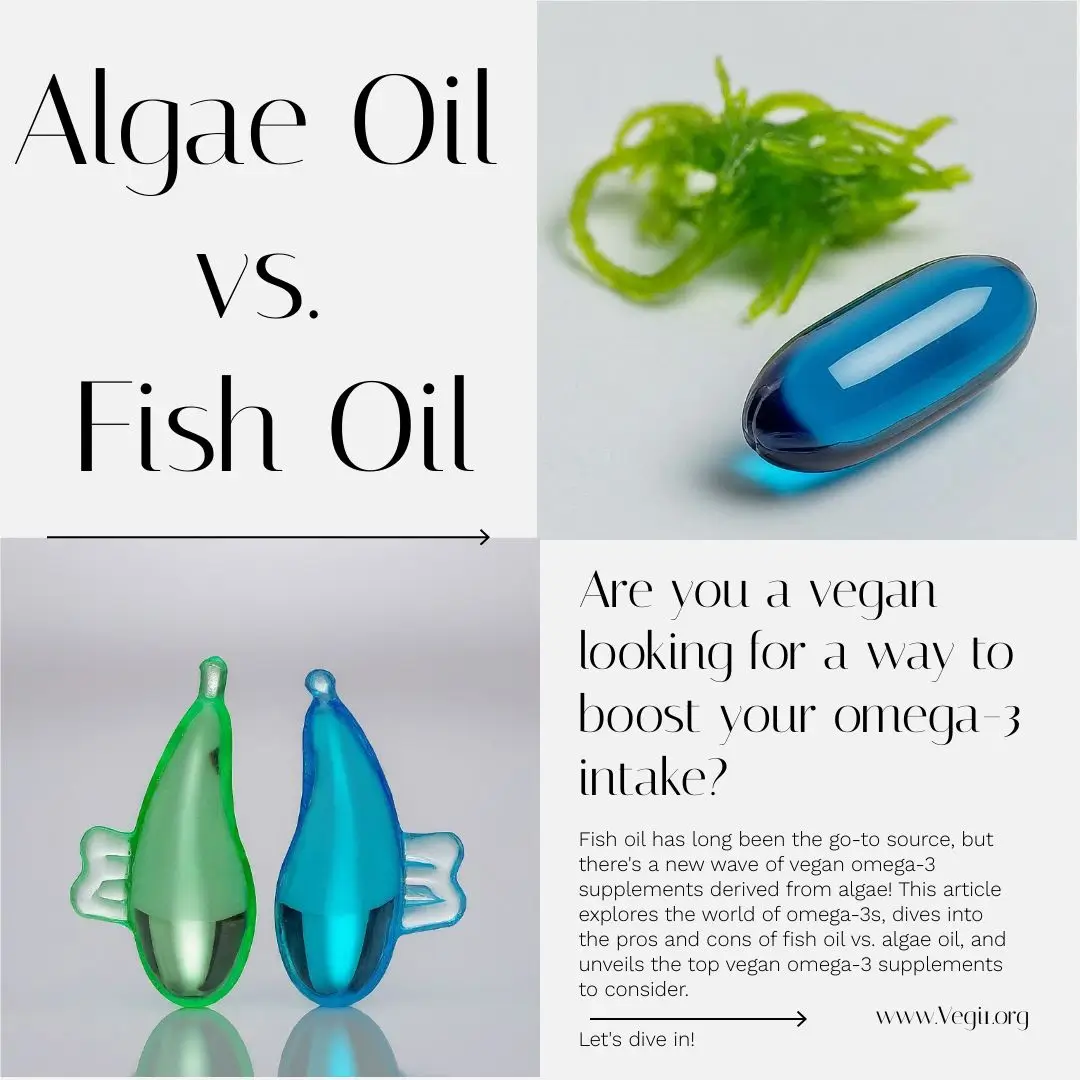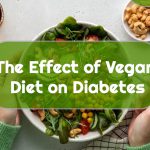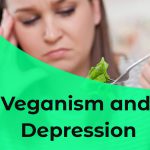Do Vegan Omega-3 Supplements Work as Well as Fish Oil?

Hi everyone, I’m Sara, and I’ve been following a vegan lifestyle with my family for about 8 years. Lately, I’d been feeling really tired and sluggish throughout the day; my skin was dry, and let’s be honest, I was forgetting everything. So I went to the doctor, and after a complete checkup, I found out that my omega-3 levels were dangerously low.
This news really surprised me because we always have chia seeds, flaxseeds, and walnuts, which are all rich sources of omega-3, in our diet. I always sprinkled these seeds on my salads and thought it was enough for us.
But in my family, I was the only one with an omega-3 deficiency, and I needed to start taking supplements immediately. So I did some more research to find the most effective vegan omega-3 supplement, and I’m here to share my findings with you.
In this article you will read:
What are Omega-3 Fatty Acids?
Before we get started, let me introduce you to these essential nutrients for our body’s health. Omega-3s play a crucial role in maintaining brain and heart health and reducing inflammation in the body. Our bodies can’t produce omega-3s on their own, which means we need to get them from our diet or supplements.
Omega-3s are also essential for the growth and development of children’s brains and for maintaining focus and boosting their learning power. A deficiency in omega-3s can lead to memory loss, dry skin, heart problems, mood swings, long-term fatigue, and poor circulation.
The Three Main Types of Omega-3s and Their Vegan Sources
Omega-3 fatty acids are essential for human health and have numerous benefits for heart, brain, and eye health.
Alpha-Linolenic Acid (ALA):
Sources: This type is found in plant-based sources like flaxseeds, walnuts, chia seeds, soybeans, and plant oils like canola oil, sesame oil, and soybean oil.
Plant-based sources rich in ALA:
- Flaxseeds: 2.3 grams of ALA per tablespoon
- Walnuts: 1.3 grams of ALA per ounce
- Chia seeds: 1.9 grams of ALA per ounce
- Hemp seeds: 1.3 grams of ALA per ounce
- Soybeans: 0.9 grams of ALA per ounce
Eicosapentaenoic acid (EPA)
Sources: This type is mainly found in fatty fish like salmon, sardines, mackerel, and anchovies, and algae.
Docosahexaenoic Acid (DHA):
Sources: This type is also found in fatty fish like salmon, sardines, mackerel, and anchovies, as well as in some algae.
While our bodies can convert ALA into EPA and DHA, this process isn’t very efficient. This is why vegans, just like non-vegans, may need to take omega-3 supplements to ensure they’re getting enough of these essential fatty acids.
ensure they’re getting enough of these essential fatty acids.
Vegan sources of omega-3 that contain all three types:
Microalgae: These algae are a great source of DHA and can be consumed as a supplement or in foods like powders and drinks.
Algae oil: This oil is extracted from microalgae and is a good source of DHA and EPA.
Vegan eggs: Some vegan eggs are fortified with DHA and EPA.
Vegan milk: Some plant-based milks like almond milk and soy milk are fortified with DHA and EPA.
Proven Health Benefits of Omega-3 Supplementation
Taking omega-3 supplements can significantly reduce your risk of disease and enhance your cognitive function. Let’s delve into the well-established health benefits of incorporating omega-3 supplements into your daily routine:
1. Reduced Risk of Heart Disease:
Reduces the risk of heart disease: Omega-3s help lower triglycerides, reduce blood pressure, lower the risk of arrhythmias, and slow plaque buildup in arteries.
2. Enhanced Brain Function:
DHA, a primary type of omega-3 fatty acid, is a major structural component of the brain. Adequate omega-3 intake is essential for preserving cognitive function, improving memory, and potentially preventing neurodegenerative diseases like Alzheimer’s and dementia.
3. Reduced Inflammation:
Omega-3s possess potent anti-inflammatory properties that can effectively manage chronic inflammatory conditions such as arthritis. These fatty acids work by regulating inflammatory signaling molecules and reducing the production of inflammatory compounds in the body.
4. Improved Eye Health:
DHA is also a crucial structural component of the retina, the light-sensitive tissue at the back of the eye. Consuming sufficient omega-3s can help prevent age-related macular degeneration, a leading cause of vision impairment and blindness.
5. Potential Cancer-Protective Effects:
Emerging research suggests that omega-3s may play a role in reducing the risk of certain types of cancer, including breast and colon cancer. Their anti-inflammatory and anti-proliferative properties may help protect cells from damage and inhibit cancer development.
Signs You Have Low Omega-3 Levels and Should Start Taking Omega-3 Immediately:
If you experience any of the following signs, your omega-3 levels may be low and you should consider starting supplementation:
- Fatigue and persistent tiredness
- Poor memory and impaired concentration
- Dry, itchy skin
- Heart problems, such as irregular heartbeat or high blood pressure
- Mood swings, irritability, or depression
- Cold hands and feet, numbness, or tingling
- Dry eyes
How much omega-3 do you need?
The optimal daily omega-3 intake varies depending on individual factors such as age, gender, health status, and diet. However, the general recommendations from the Food and Drug Administration (FDA) and the American Heart Association (AHA) are as follows:
- Adults over 50: 1000 mg of EPA and DHA combined per day
- Pregnant or breastfeeding women: 1200 mg of EPA and DHA combined per day
- Children 1 to 3 years: 300 mg of ALA per day
- Children 4 to 8 years: 600 mg of ALA per day
- Children 9 to 13 years: 1000 mg of ALA per day
- Boys 14 to 18 years: 1600 mg of ALA per day
- Girls 14 to 18 years: 1100 mg of ALA per day
Can Vegan Diets Really Make Up for the Omega-3?
Why Vegans Don’t Use Fish Oil Omega-3 Supplements
Fish oil has long been touted as the best source of omega-3 fatty acids in advertisements and the media. However, there are several downsides that are often overlooked. Let’s take a closer look at the drawbacks of fish oil and fish oil supplements.
Veganism and Animal Welfare:
Vegans, as animal lovers, strive to avoid harming animals in all aspects of their lives, including their diet. Fish oil omega-3 supplements are extracted from fish tissues, meaning that fish are caught and killed in the process of obtaining them.
Vegans oppose this for several reasons:
-
Environmental Destruction:
Overfishing is a critical issue. The demand for fish oil contributes to declining fish populations, disrupting marine ecosystems, and threatening biodiversity. According to the Food and Agriculture Organization (FAO), overfishing has impacted nearly 90% of the world’s fish stocks, pushing many species to the brink of extinction.
Vegans believe that all living creatures, including fish, have the right to life and should not be exploited for human well-being.
-
Mercury and Other Contaminants
Fish are often contaminated with heavy metals like mercury, as well as industrial pollutants such as polychlorinated biphenyls (PCBs) and dioxins. These contaminants can accumulate in our bodies over time, posing serious health risks, especially for pregnant women and young children. Consuming contaminated fish oil can lead to neurotoxicity, hormonal disruptions, and an increased risk of cancer.
-
Ethical Concerns:
For those following a vegan lifestyle, the ethical implications of fish oil consumption are significant. The fishing industry is notorious for bycatch (the unintentional capture of non-target species) and cruel fish killing methods.
Animal testing is another concern. Nearly all non-vegan drugs and supplements are tested on animals like monkeys and rabbits before being mass-produced. Additionally, the casings of non-vegan supplements are often derived from animal intestines.
-
Health Risks and Allergic Reactions
Fish oil supplements can cause side effects such as fishy burps, bad breath, heartburn, nausea, and diarrhea. Some individuals may also experience an increased risk of bleeding due to the blood-thinning effects of omega-3s in fish oil, which can be problematic for those taking certain medications or with bleeding disorders.
Plant-Based Omega-3 Alternatives
Today, high-quality plant-based omega-3 supplements are readily available from sources like algae. These supplements offer an excellent option not only for vegans but also for anyone seeking a healthy and sustainable alternative to fish oil.
Instead of fish oil, vegans can obtain omega-3s from plant-based sources like algae, flaxseeds, walnuts, chia seeds, and walnut oil. These sources are not only cruelty-free but also offer a multitude of health benefits.
Algae Oil Omega-3 Supplements
As I delved into the world of vegan omega-3 supplements, I discovered that algae oil, the primary source of vegan omega-3s, offers a myriad of benefits without the drawbacks of fish oil.
Environmental Friendliness
Algae cultivation boasts minimal environmental impact and eliminates the need for overfishing, unlike fish oil. Algae can be rapidly grown in controlled environments, minimizing its ecological footprint.
Purity and Safety
Algae-based omega-3 supplements are devoid of contaminants like mercury found in fish. They are free of heavy metals, making them a safer choice, especially for pregnant women and children.
Cruelty-Free and Ethical
Algae farming poses no harm to animals or the environment, making it a completely cruelty-free practice.
Precise EPA and DHA Levels
Fourthly, we can obtain precise levels of EPA and DHA fatty acids from algae oil supplements without any risks or side effects.
Studies have shown that omega-3s from algae are just as effective as those from fish. For instance, a 2014 study published in the journal “Lipids in Health and Disease” found that algae oil supplementation raised blood levels of DHA just as efficiently as fish oil in vegans .
Foods High in CoQ10 for Vegetarians and Vegans

Health Benefits
Both fish-based and algae-based omega-3s have been linked to numerous health benefits, including:
Heart Health: A meta-analysis published in the “Journal of the American Heart Association” found that both fish and algae-derived omega-3 supplements reduced triglycerides and improved overall heart health .
Brain Function: Research published in “Nutrients” highlighted that DHA from both fish and algae sources supports cognitive function and may help prevent neurodegenerative diseases .
Inflammation: Omega-3s from both sources have anti-inflammatory properties, which can help manage chronic conditions like arthritis.
Nutritional Comparison
Let’s compare the nutritional profiles of fish oil and algae oil supplements:
| Nutrient | Fish Oil (per 1000 mg) | Algae Oil (per 1000 mg) |
|---|---|---|
| EPA (mg) | 180 | 150 |
| DHA (mg) | 120 | 250 |
| Total Omega-3 (mg) | 300 | 400 |
| Contaminants (mercury) | Possible | None |
| Sustainability | Low | High |
A study in “The American Journal of Clinical Nutrition” indicated that the conversion rate of ALA to DHA is less than 10%, making direct sources like algae oil a preferable option for those needing higher DHA levels .
Foods High in Omega 3 for Vegetarians and Vegans
Is Vegan Omega-3 Just as Effective as Fish Oil?
Within the first week of consuming algae oil omega-3 supplements, I noticed a positive shift in my mood and skin health. After two months of supplementation, I retested and found my EPA and DHA levels had normalized.
Top Vegan Omega-3 Supplements
I thoroughly researched various websites to identify the best omega-3 supplement brands. Here are my top recommendations:
Ovega-3: Derived from algae, this supplement provides a balanced dose of DHA and EPA.
NATURELO Vegan Omega-3: Offering DHA and EPA from algae oil, this product is also rich in antioxidants.
Deva Vegan Omega-3 DHA: Deva supplements deliver a high dose of DHA.
Nordic Naturals Algae Omega: Renowned for their purity and quality, Nordic Naturals offers an effective and eco-friendly plant-based omega-3 supplement.
Conclusion
So, do vegan omega-3 supplements work as well as fish oil? Absolutely. Algae-based supplements are comparable in terms of health benefits to fish oil. I highly recommend considering algae oil omega-3 supplements, even if you’re not vegan, as they are free from fishy taste, side effects like nausea, fishy burps, and diarrhea, and they are overall healthier.
Thank you for joining me on this journey. I hope this article has provided valuable information for considering plant-based omega-3 supplements as a suitable and effective alternative to fish oil options.
Please feel free to comment below if you have any questions or want to share your experiences.
References:
https://pubmed.ncbi.nlm.nih.gov/24261532/
https://www.ncbi.nlm.nih.gov/pmc/articles/PMC8533147/










